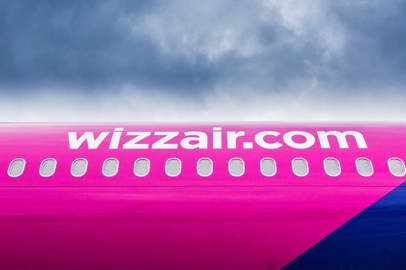13 September 2024
Iberia uses SAF for its tests
Using SAF in the engine test bench will save 115 tonnes of CO2 per year
Iberia Mantenimiento has started the use of 5% sustainable aviation fuel (SAF) in its engine tests at its facilities in La Muñoza, near Adolfo Suarez Madrid-Barajas Airport. This initiative marks a further step towards the decarbonisation of the aviation sector, contributing to a saving of 115 tonnes of CO2 per year. Iberia Mantenimiento thus becomes the first aircraft maintenance supplier in Spain to regularly use SAF in tests for commercial airline engines. The biofuel used was produced by Cepsa in its La Rábida Energy Park (Huelva) from organic residues and used cooking oils. This year, Cepsa will supply Iberia Mantenimiento with more than 36 tonnes of SAF, reinforcing the two companies' joint commitment to reducing CO2 emissions.
Iberia Mantenimiento's sustainability strategy
The use of SAF is part of Iberia Mantenimiento's sustainability strategy, which is based on five pillars:
- Water: the goal is to reduce consumption by 10% by 2027 and 30% by 2030 compared to 2022 levels.
- CO2: use 5% SAF in 2024 and 2025, with a progressive increase in the following years, to reduce CO2 emissions by 20% by 2030 compared to 2022.
- Volatile organic compounds and solvents: 10% decrease by 2025 compared to 2022.
- Energy: reduce energy consumption by 20% by 2025 compared to 2022 levels, with 10% of energy generated by solar panels and the remainder from 100% renewable sources.
- Waste: Recycling more than 80% of waste and reducing it by 20% by 2025 compared to 2022 levels.
Expansion in biofuel production
Cepsa, engaged in the production of SAF and second-generation biofuels, is building, in collaboration with Bio-Oils, the largest biofuel refinery in southern Europe in Palos de la Frontera (Huelva), with an investment of 1.2 billion euros. The plant, which will be operational from 2026, will have a production capacity of 500,000 tonnes of SAF and renewable diesel, contributing to Cepsa's goal of producing 800,000 tonnes of SAF per year by 2030.
The use of SAF in Iberia Mantenimiento's tests demonstrates its commitment to sustainability, helping to reduce environmental impact and supporting Iberia and Cepsa's strategy for more sustainable aviation.
What is SAF?
Sustainable Aviation Fuel (SAF) is an alternative fuel to fossil fuels, produced from organic materials such as vegetable oils, animal fats and agricultural residues, or synthetically from captured CO2 and renewable hydrogen. It reduces CO2 emissions by up to 90% compared to conventional fuel and promotes the circular economy, as it is produced from waste materials that would otherwise end up in landfills.
By the editorial staff of Avion Tourism Magazine
Text source and visual photo: Copyright © Iberia Press Office
Photo Madrid: Copyright © Sisterscom.com / Shutterstock
Things to see in MADRID
Madrid. Photo: Copyright © Sisterscom.com / Shutterstock
You might be interested in
Sustainability

Sustainable Mobility
Dubai Airports achieves ACI Level 4 accreditation
DXB among the few airports in the world awarded for the absolute reduction of emissions and for the ability to drive environmental change
Sustainability

Sustainable Mobility
Wizz Air's Net Zero Strategy
The company launches its "Flying Towards Net Zero" strategy, which focuses on sustainable aviation fuel (SAF) as a key lever for decarbonization
Sustainability

Sustainable Mobility
Volotea with TotalEnergies for sustainable fuel
An agreement for the supply of sustainable aviation fuel (SAF) for use on flights departing from French airports




